Seminar Blogs
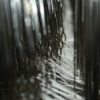
“The Human Subject and a Progressive Environmental Future” – Christl de Kloe
Carl Lavery asks in his Introduction: Performance and Ecology – What Can Theatre do? (2016), the question “what theatre and performance might be able to do ecologically” (Lavery 2016, 229). Two premises are discussed for this question. The first is that the ecological contribution of theatre is not to be found in explicit messages but…
Read more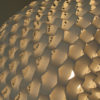
“The Theater as an Extension of the Mind” – Angelo Zinna
Listening to Professor Carl Lavery speak about both the concept of “theater ecology” and the process of composing a book that would not only present the topic but create a new type of subject entirely, was a powerful reminder of how creative and academic practice can be unified to bring a meaningful project to completion….
Read more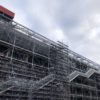
“Infrastructure of theatrical tools” – Freja Kir
Following a focus on diffraction through sound and mathematics, this second part continues the series of short blog posts reflecting on current perspectives for measuring transmissions in motions. The writings specifically draw on references and inspiration shared from the seminar of the same title hosted by the University of Utrecht during the first half of…
Read more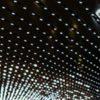
“Poiesis in ecotheatre” – Aishwarya Kumar
Instytut B61, positioned at the intersection of science and contemporary art, brings together artists, scientists, and designers to create theatre that performs the theatre of astronomy. In 2017 they performed Evolution of Stars, a set of 13 audio-visual and interactive theatre performances that divulged the life of a star. Written and directed by an astrophysicist…
Read more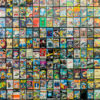
“Games of Ecology?” – Dennis Jansen
During last year’s seminar series, I wrote a blog post on the increasing attention being paid to “ecological matters” in game studies. The ecological themes in Carl Lavery’s recent TiM lecture and broader work offer a good opportunity to revisit that topic and expand on some of the topics raised in that earlier post. If,…
Read more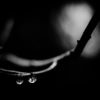
“To survive out there” – T.P.
*Theater ecology* – – not ecology of theater, or theatrical ecology, but theater ecology. The two terms side by side – – not desiring to exceed beyond the “horizon” of either of the terms – – and so, a gap between them appears. Theater ecology calls forth an intermediate bridge. Within theater ecology, the gesture…
Read more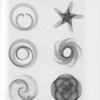
“Harmonic vibrations rule the world” – T.P.
“Music is the pleasure the human mind experiences from counting without being aware that it is counting” Gottfried Leibniz (~1700) Around 500 B.C., Pythagoras showed that when strings have simple ratios of their lengths, they will make a harmoniously pleasing chord when you pluck them. If one oscillates twice as fast as another (at a…
Read more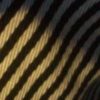
“Twenty-First-Century Feed-Forward Music” – Antony Nestel
How does the universe sound like? A question mathematician and electronic musician Valery Vermeulen is occupied with. Vermeulen’s interest doesn’t stop there, he manages with the captured abstract scientific data stemming from space to realise innovative ways to compose and perform music compositions. Vermeulen uses two distinct creative processes that facilitate ‘his’ cosmic music possible:…
Read more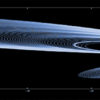
“Never the Twain Shall Meet” – Dennis Jansen
The contact points between art and scholarship are usually places where both realms face an irresistible challenge, a question: what makes one different from the other? At a time when local art galleries engage in ‘research’ projects and university professors increasingly seek to incorporate “practice-based research” (Nelson 2006) and “auto-theory” (Bal 2013) into their work,…
Read more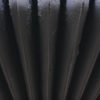
“Music and ‘the fundamental nature of the universe'” – Christl de Kloe
Valery Vermeulen, mathematician and musician, provided us, in the second TiM seminar, with some interesting insights into what interdisciplinary work can look like. Amongst others, he presented a project where he makes music “using data stemming from space and deep space and astrophysical models” (“Mikromedas – Valeryvermeulen.Net” n.d.). In this blog, I will discuss two…
Read more
